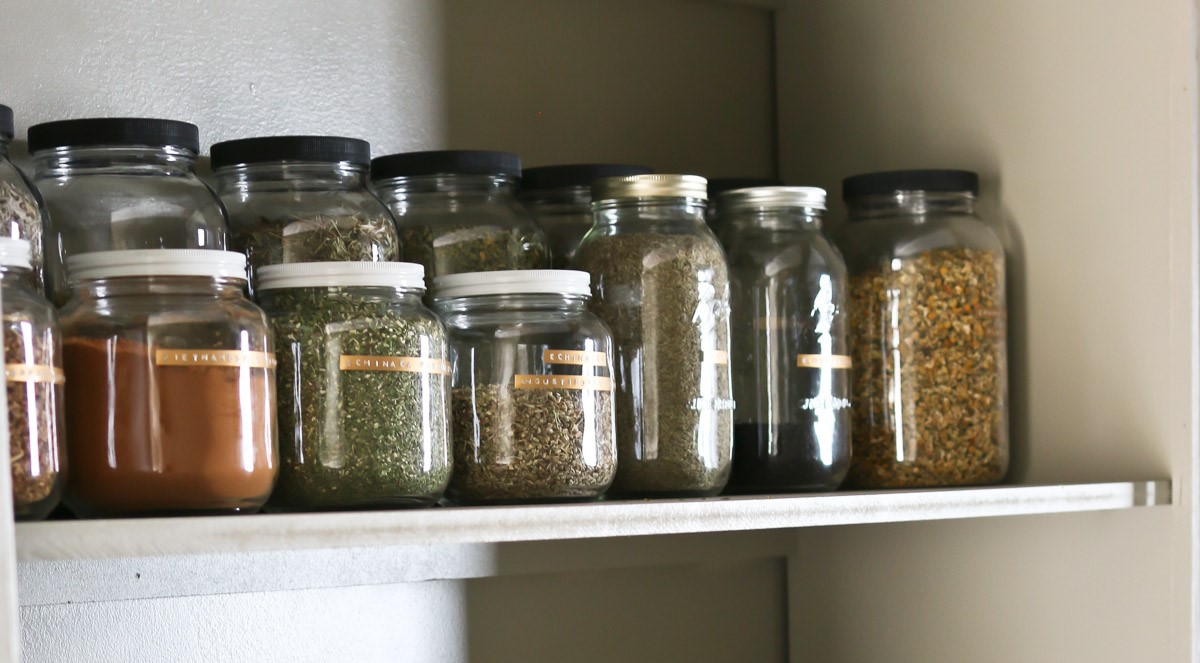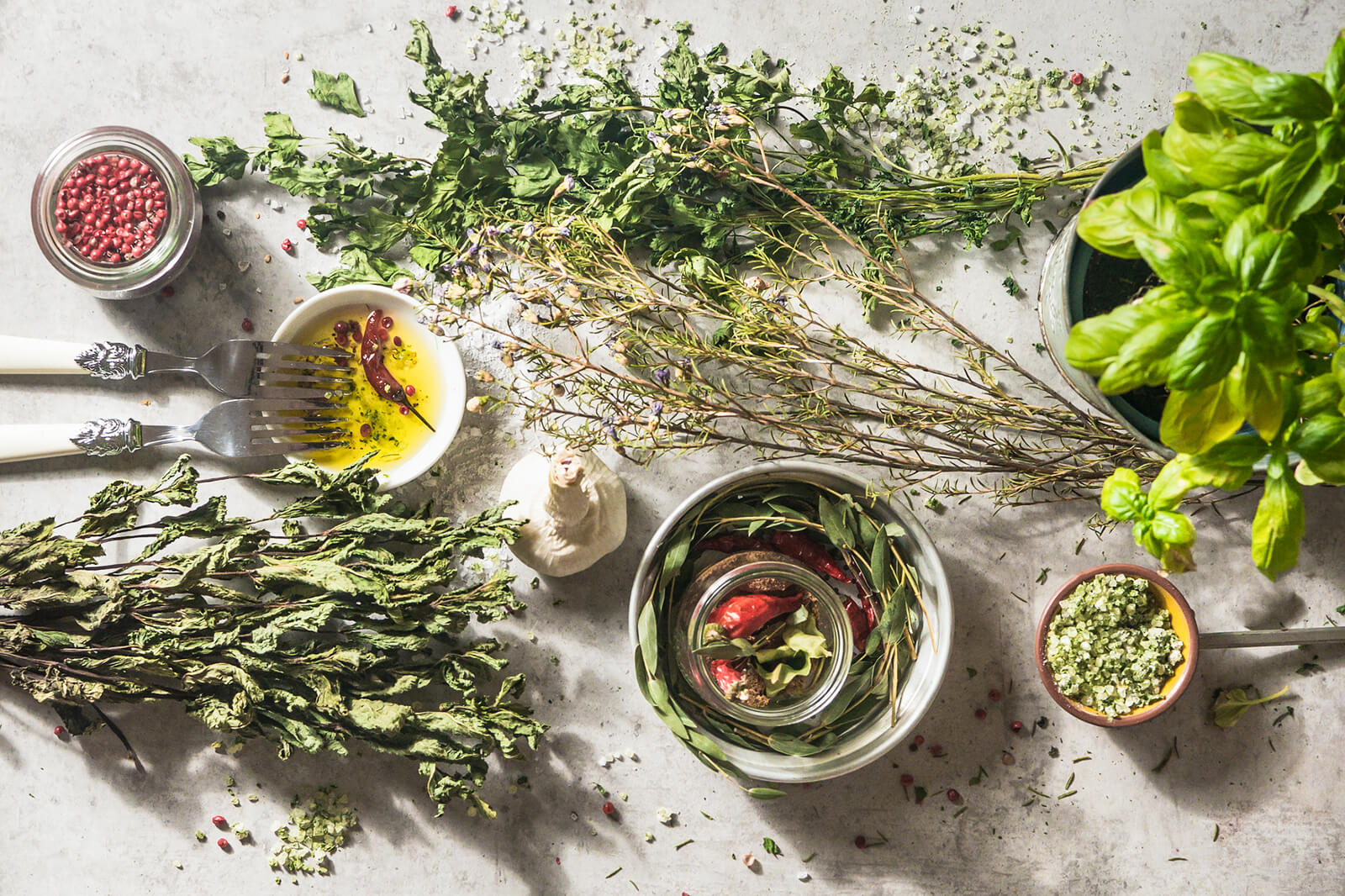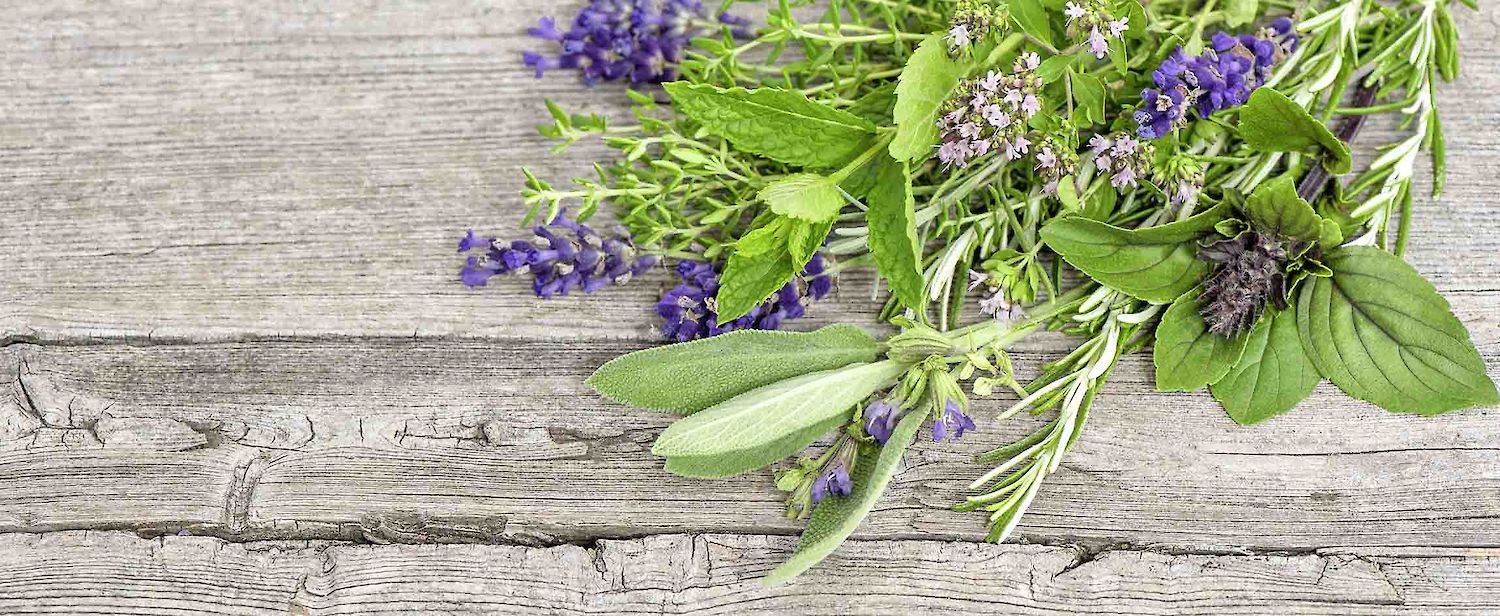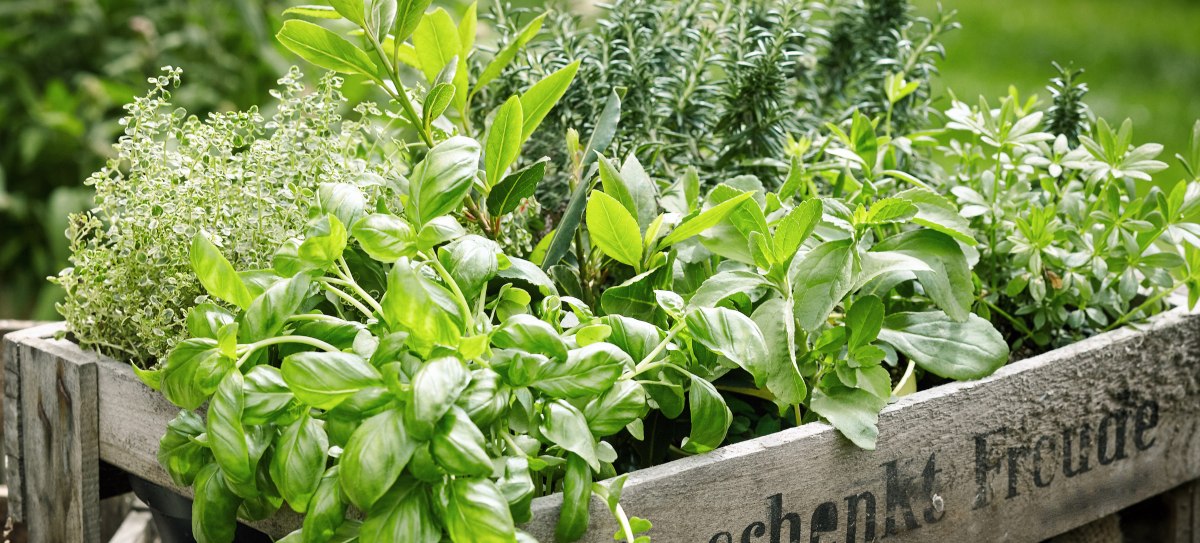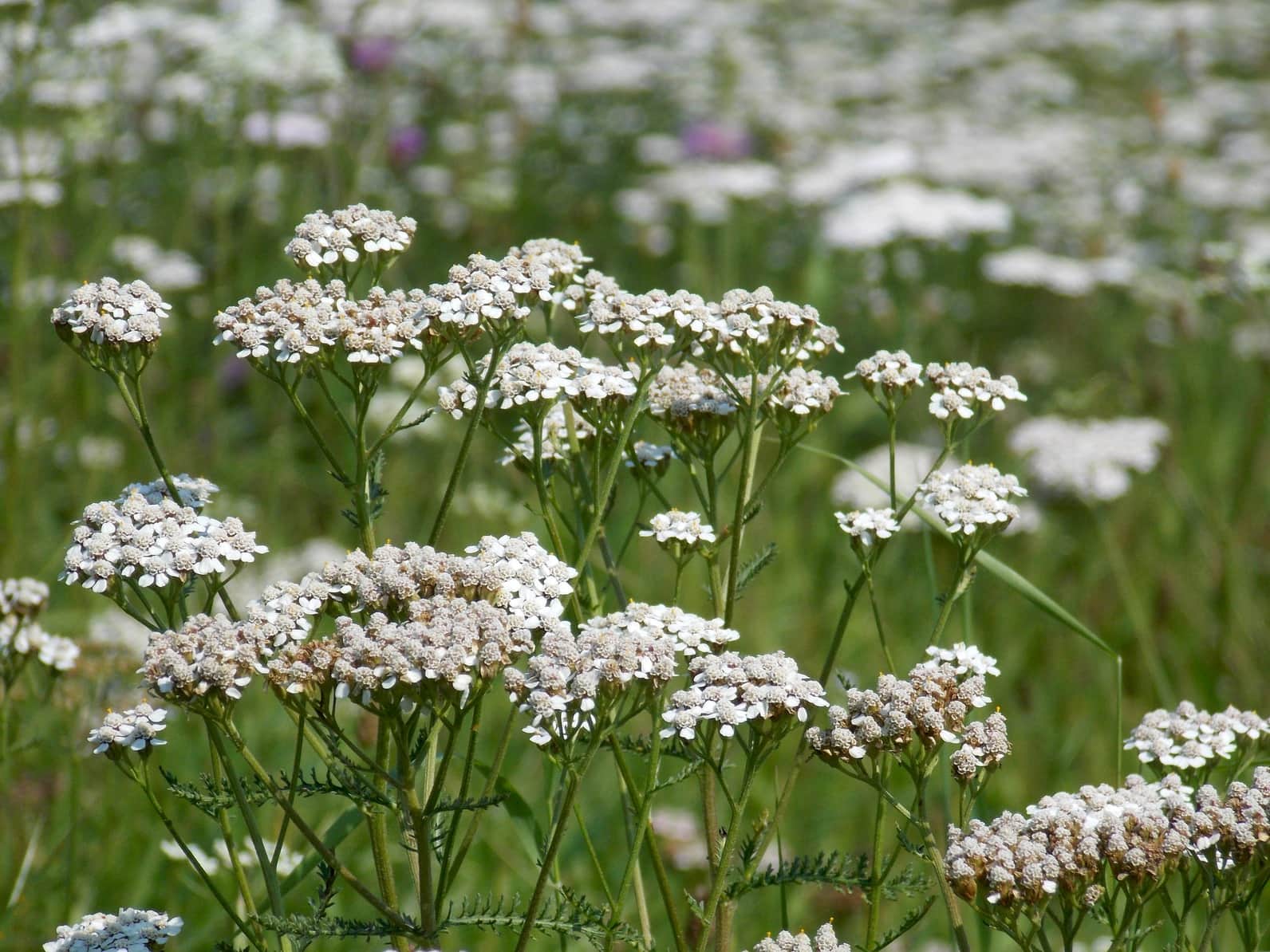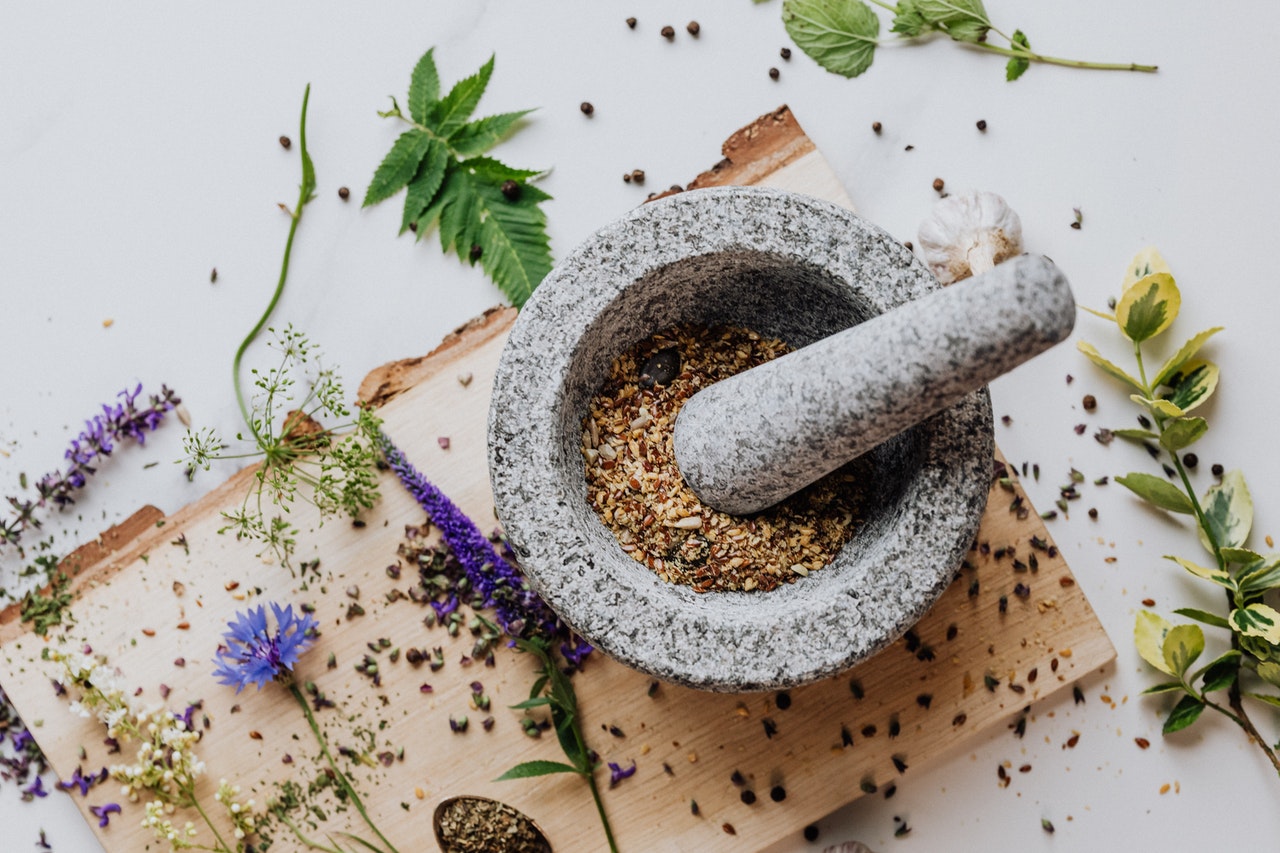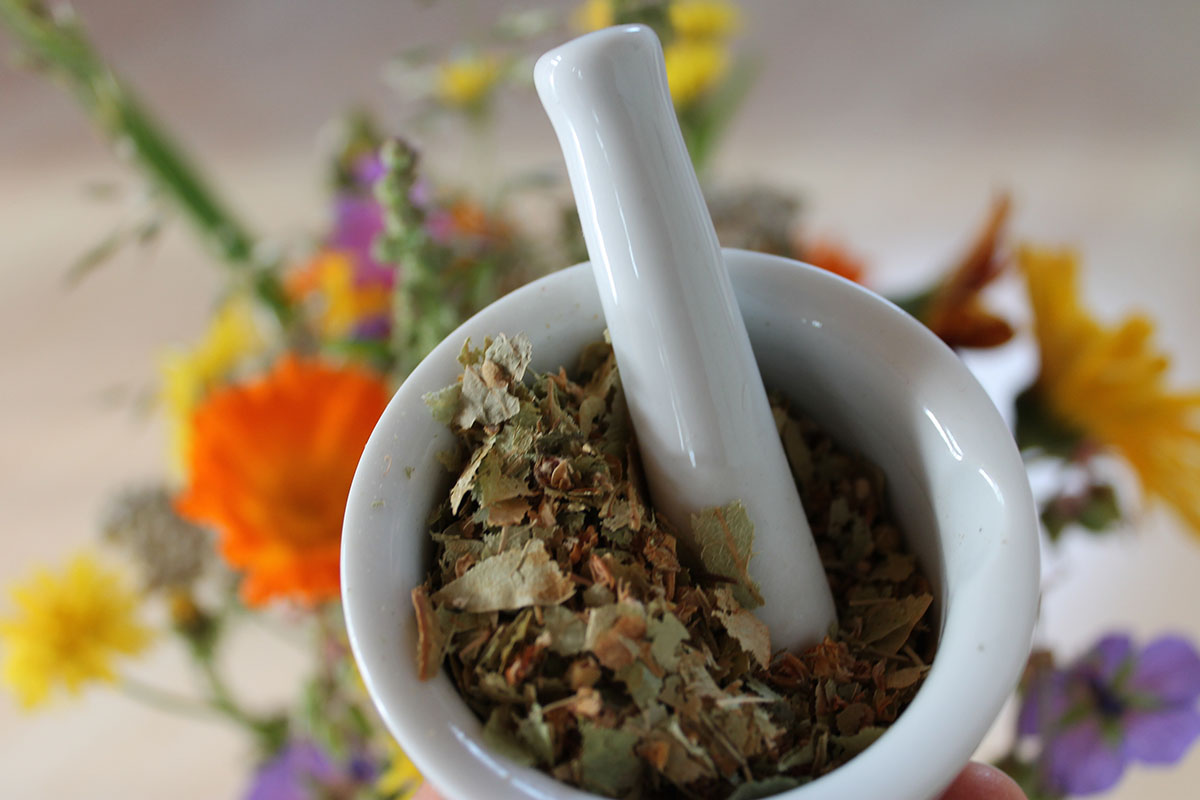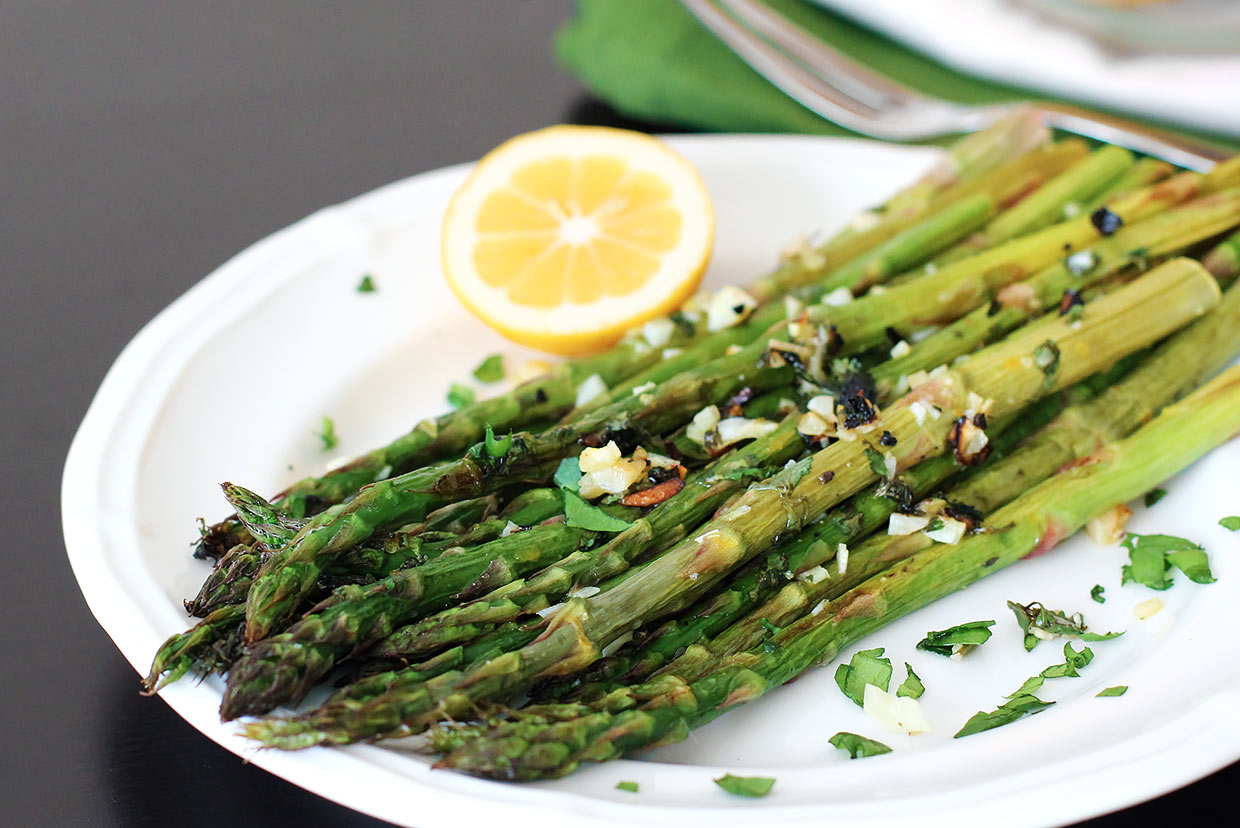Home>Gardening News and Trends>Gardening Trends>What Herbs Fight Infection
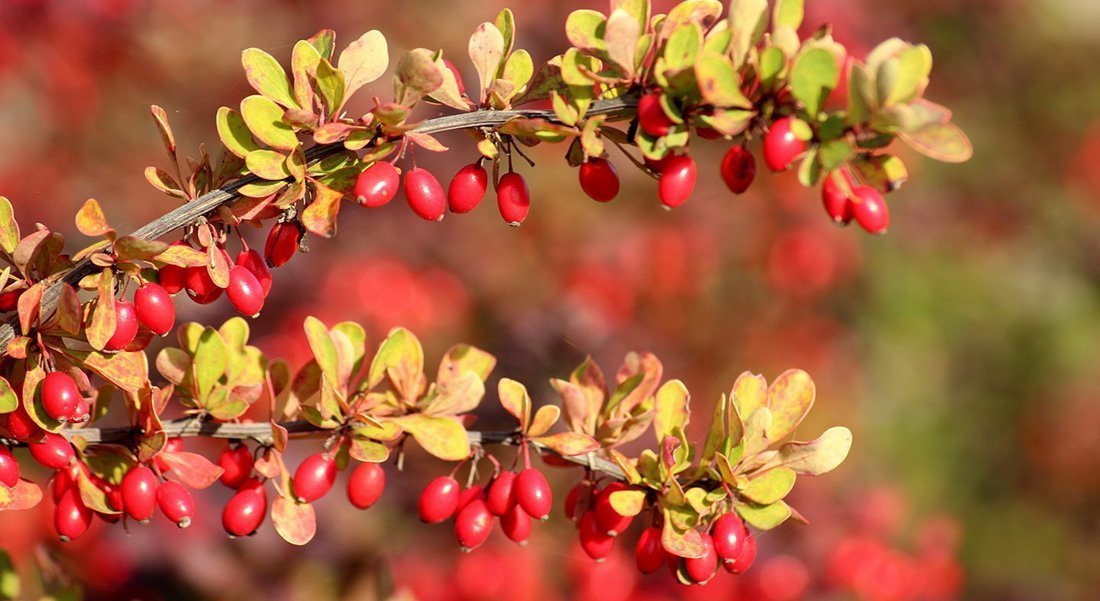

Gardening Trends
What Herbs Fight Infection
Modified: January 22, 2024
Discover the latest gardening trends and learn about the powerful herbs that fight infections. Boost your health and cultivate a vibrant garden full of natural remedies.
(Many of the links in this article redirect to a specific reviewed product. Your purchase of these products through affiliate links helps to generate commission for Chicagolandgardening.com, at no extra cost. Learn more)
Table of Contents
Introduction
Gardening has long been a popular pastime, allowing people to connect with nature and reap the benefits of fresh produce. While growing fruits and vegetables is a common focus for many gardeners, an increasing number are turning their attention to herbs with medicinal properties. Herbs have been used for centuries in traditional medicine, and their popularity continues to grow as people seek natural remedies for various health concerns. In particular, herbs that fight infection have gained widespread attention for their potential to support the immune system and promote overall well-being.
Infections can range from minor illnesses like colds and flus to more serious conditions such as urinary tract infections, respiratory infections, and skin infections. While consulting with a healthcare professional is always recommended for proper diagnosis and treatment, incorporating infection-fighting herbs into your daily routine may complement your overall health and wellness.
This article will explore some of the most potent infection-fighting herbs that you can cultivate in your garden or find at your local market. From the pungent and versatile garlic to the vibrant and powerful echinacea, each herb offers its unique set of properties and benefits to bolster your body’s defense mechanism.
Garlic
Garlic (Allium sativum) is not only a staple in many culinary dishes around the world but also a powerful infection-fighting herb. Known for its pungent aroma and flavor, garlic has been used for centuries in traditional medicine for its antimicrobial and immune-boosting properties.
One of the key compounds in garlic is allicin, which is responsible for its potent antibacterial, antiviral, and antifungal effects. Allicin works by inhibiting the growth and replication of harmful microorganisms. Consuming garlic regularly has been associated with reducing the risk of various infections, including respiratory infections, gastrointestinal infections, and skin infections.
Garlic is best consumed raw or lightly cooked to preserve its medicinal properties. Crushing or chopping garlic cloves activates the enzymes that convert the sulfur compounds into allicin, maximizing its potency. You can add crushed garlic to your favorite salad dressings, sauces, and marinades, or simply take a garlic supplement if the taste and odor are a concern.
Beyond its infection-fighting abilities, garlic also offers numerous other health benefits. It has been shown to support cardiovascular health by lowering blood pressure and cholesterol levels. Additionally, garlic contains antioxidants that help neutralize harmful free radicals and reduce inflammation in the body.
Growing garlic in your garden is relatively easy, whether in pots or directly in the soil. Plant individual cloves in well-drained soil during the fall, and they will develop into full bulbs by the following summer. Regularly watering and keeping weeds at bay will ensure a bountiful garlic harvest.
Incorporating garlic into your daily routine can help bolster your immune system and protect against infections. However, it’s essential to note that garlic should not be used as a substitute for medical treatment. If you have a severe or persistent infection, it’s important to consult with a healthcare professional for proper diagnosis and guidance.
Echinacea
Echinacea, also known as purple coneflower, is a popular herb traditionally used to strengthen the immune system and fight off infections. Native to North America, Echinacea purpurea and Echinacea angustifolia are the most common species used for medicinal purposes.
Echinacea is rich in compounds called alkamides, phenolic acids, and polysaccharides, which are believed to have immune-stimulating and anti-inflammatory effects. These compounds work together to enhance the activity of immune cells, such as white blood cells, and promote the production of antibodies, helping to ward off infections and reduce their severity.
Research has shown that regularly consuming echinacea supplements or extracts may help prevent and shorten the duration of the common cold and reduce the frequency of respiratory tract infections. It may also be beneficial for preventing and treating upper respiratory tract infections, such as sinusitis and bronchitis.
Echinacea can be consumed in various forms, including capsules, tinctures, teas, and even as a topical ointment for skin infections. When selecting echinacea products, look for standardized extracts that contain a specific amount of active compounds to ensure potency and effectiveness.
While echinacea is generally safe for most people, it’s important to note that it may interact with certain medications and may not be suitable for individuals with autoimmune conditions or allergies to plants in the daisy family. As always, it’s best to consult with a healthcare professional before starting any new herbal regimen.
If you have a green thumb, you can also grow your own echinacea in your garden. Echinacea plants thrive in well-drained soil and full sun. The beautiful purple flowers not only add beauty to your garden but also serve as a natural remedy for immune support.
Whether in supplement form or fresh from your garden, adding echinacea to your health routine may help strengthen your immune system and protect against various infections. However, it’s important to remember that herbal remedies should be used as complementary support and should not replace medical advice or treatment.
Goldenseal
Goldenseal (Hydrastis canadensis) is a perennial herb native to North America. It has a long history of traditional use in Native American medicine for its antimicrobial properties and its ability to help fight infections.
The main active compound in goldenseal is berberine, which possesses broad-spectrum antimicrobial effects against bacteria, fungi, and parasites. Berberine works by inhibiting the enzymes necessary for the growth and replication of these microorganisms, making it a valuable tool in addressing various infections.
Goldenseal has been commonly used to support the immune system and address respiratory, gastrointestinal, and urinary tract infections. It has also been used as a topical treatment for skin infections, such as cuts, wounds, and rashes.
It is important to note that goldenseal is an endangered plant in the wild, so it is best to opt for sustainably sourced goldenseal products or alternatives when available. Additionally, goldenseal should be used with caution and under the guidance of a healthcare professional, as it may interact with certain medications and prolonged use may lead to undesirable effects.
Goldenseal is typically available in various forms, including capsules, tablets, tinctures, and topical creams. When using goldenseal, it is important to follow the recommended dosage and duration as directed on the product label or as advised by a healthcare professional.
If you have a green space, you may consider growing goldenseal in a shaded area of your garden. Keep in mind that goldenseal requires specific growing conditions, including moist, well-drained soil and limited exposure to direct sunlight.
While goldenseal shows promise in fighting infections, it is crucial to remember that it should not replace proper medical care. If you suspect an infection or have a serious health concern, it is always best to consult with a healthcare professional for appropriate diagnosis and treatment options.
Turmeric
Turmeric (Curcuma longa) is a vibrant yellow spice commonly used in Indian cuisine and traditional Ayurvedic medicine. Its active compound, curcumin, is known for its potent anti-inflammatory and antioxidant properties, making turmeric a valuable herb for fighting infections.
Curcumin has shown antimicrobial activity against a wide range of bacteria, viruses, and fungi. It works by disrupting the cell membranes and metabolic processes of these microorganisms, inhibiting their growth and replication. This makes turmeric a potential ally in combating various infections, including respiratory infections, skin infections, and gastrointestinal infections.
In addition to its antimicrobial properties, turmeric also supports the immune system by modulating immune response and reducing inflammation. Chronic inflammation has been linked to a higher susceptibility to infections, so turmeric’s anti-inflammatory action may indirectly contribute to its effectiveness against infections.
There are several ways to incorporate turmeric into your daily routine. You can add it to your cooking, sprinkle it on roasted vegetables, or blend it into smoothies. Turmeric supplements are also available, often in combination with black pepper to enhance curcumin absorption.
It is important to note that curcumin is relatively poorly absorbed by the body on its own. Consuming turmeric with black pepper, which contains piperine, can significantly increase curcumin absorption. Additionally, combining turmeric with a source of fat, such as coconut oil, can further enhance curcumin bioavailability.
While turmeric is generally safe for most people, high doses or prolonged use may cause stomach upset in some individuals. People with gallbladder issues or who are prone to kidney stones should use turmeric with caution. As always, if you have any underlying health conditions or are taking medication, it’s best to consult with a healthcare professional before starting any new herbal regimen.
Consider growing turmeric in your garden if you live in a warm and tropical climate, or you can opt for purchasing fresh turmeric root from your local market. Fresh turmeric root can be juiced, grated, or used to make a healing turmeric tea.
Incorporating turmeric into your wellness routine can offer tremendous benefits for overall health and immune support. However, it is essential to remember that turmeric should be used as part of a holistic approach to health and not as a substitute for medical advice or treatment.
Oregano
Oregano (Origanum vulgare) is an herb commonly used in Mediterranean cuisine and also possesses impressive infection-fighting properties. This fragrant herb is rich in compounds such as carvacrol and thymol, which have potent antimicrobial and antioxidant effects.
The antimicrobial properties of oregano have been shown to inhibit the growth of various bacteria, including those responsible for foodborne illnesses like Salmonella and E. coli. Oregano oil, in particular, has been found to be effective against several strains of bacteria, fungi, and parasites.
In addition to fighting infections, oregano also contains a high concentration of antioxidants that help neutralize harmful free radicals in the body. This antioxidant activity can help strengthen the immune system and reduce inflammation, contributing to the overall health and well-being of the body.
Oregano can be used in various forms, fresh or dried, depending on your preference and availability. Fresh oregano leaves can be added to salads, soups, and sauces, while dried oregano can be incorporated into spice blends or sprinkled on roasted vegetables and meats.
Oregano essential oil is another popular option, especially for its concentrated antimicrobial properties. However, it is important to exercise caution when using essential oils, as they are highly concentrated and should be diluted before applying to the skin or ingesting.
If you have a green thumb, you can easily grow oregano in a sunny spot in your garden or even in containers. Oregano plants are hardy and resilient, making them a low-maintenance addition to your herb garden.
While oregano is generally safe, it may interact with certain medications, particularly blood thinners. As always, it is advisable to consult with a healthcare professional if you have any concerns or are taking prescription medications.
Incorporating oregano into your diet and lifestyle can be a flavorful and effective way to support your immune system and fight off infections. However, it is important to remember that oregano should be used in conjunction with appropriate medical care and not as a standalone treatment or replacement for professional advice.
Ginger
Ginger (Zingiber officinale) is a versatile herb widely known for its culinary and medicinal uses. With its unique spicy and aromatic flavor, ginger has been used for centuries to address various health issues, including infections.
The main bioactive compound in ginger, gingerol, possesses potent antimicrobial properties. It helps inhibit the growth of several types of bacteria, including those responsible for respiratory and gastrointestinal infections. Ginger has also shown antiviral activity against different viruses, including those causing respiratory infections like the common cold and flu.
Ginger is rich in antioxidants that help strengthen the immune system and reduce inflammation. By modulating immune response and promoting the production of antibodies, ginger can help the body fight off infections more effectively.
Consuming ginger regularly can be done in various ways. It can be added to teas, soups, stir-fries, or incorporated into smoothies and juices. Ginger supplements, such as capsules or powdered extracts, are also available for convenient use.
In addition to its infection-fighting properties, ginger is well-known for its digestive benefits. It can help alleviate nausea, reduce inflammation in the gut, and promote healthy digestion. The soothing properties of ginger make it particularly helpful for individuals with gastrointestinal infections.
Growing ginger at home can be a rewarding experience. While it is a tropical plant, ginger can be cultivated in containers indoors or in warmer climates outdoors. Planting ginger root in well-drained soil and providing it with regular watering and warmth will result in fresh ginger for culinary and medicinal use.
It is important to note that ginger may interact with certain medications, particularly blood thinners. If you are taking any prescription medications, it is advisable to consult with a healthcare professional before incorporating ginger into your routine.
While ginger is a valuable herb for its infection-fighting properties, it is essential to remember that it should not replace appropriate medical care. If you have a severe or persistent infection, seeking professional medical advice is crucial for proper diagnosis and treatment.
Thyme
Thyme (Thymus vulgaris) is a fragrant herb commonly used in cooking and traditional medicine. It not only adds flavor to dishes but also offers a wide range of health benefits, including its ability to combat infections.
Thyme contains compounds such as thymol and carvacrol, which possess strong antimicrobial properties. These compounds help inhibit the growth of bacteria, fungi, and viruses, making thyme a valuable herb for fighting respiratory infections, throat infections, and even common skin infections.
Research has shown that thyme extract can be effective against respiratory pathogens, including those responsible for coughs, bronchitis, and chest congestion. Thyme has also demonstrated antiviral activity against certain strains of influenza and herpes viruses.
In addition to its antimicrobial effects, thyme is also rich in antioxidants that help boost the immune system and reduce oxidative stress in the body. This may further support the body’s ability to fight off infections and promote overall well-being.
Thyme can be used in various ways to incorporate its infection-fighting properties into your daily routine. You can add fresh or dried thyme to soups, stews, and sauces, or steep it in hot water to make a soothing and invigorating herbal tea.
For individuals who are interested in growing their own herbs, thyme is a great addition to a garden. It is a low-maintenance herb that thrives in well-drained soil and full sun, and it can be easily propagated from cuttings or purchased as established plants.
While thyme is generally safe for most individuals, it may cause allergic reactions in some people. As always, it is important to consult with a healthcare professional before using thyme for medicinal purposes, especially if you have any underlying health conditions or are taking medications.
It’s important to remember that while thyme may offer infection-fighting properties, it should not replace appropriate medical care. If you are experiencing severe symptoms or have a persistent infection, it is best to seek advice from a healthcare professional for proper diagnosis and treatment.
Elderberry
Elderberry (Sambucus nigra) is a dark purple berry that has been used for centuries in traditional medicine for its immune-boosting properties. Elderberries are rich in antioxidants, vitamins, and minerals, making them a powerful ally in fighting infections.
Elderberries contain flavonoids, specifically anthocyanins, which have been shown to have antiviral and immune-stimulating effects. These compounds work by inhibiting the ability of viruses to enter and replicate in host cells, reducing their ability to cause infection.
Research has shown that elderberry extracts can be effective in reducing the severity and duration of viral respiratory infections such as the common cold and flu. They may also help boost the immune system, enhancing its ability to fight off infections.
Elderberry can be consumed in various forms, including syrups, teas, capsules, and tinctures. Elderberry syrup is a popular choice, particularly for its convenience and effectiveness. It is important to note that elderberries should be cooked or processed before consumption, as raw elderberries can cause gastrointestinal discomfort.
In addition to fighting infections, elderberry has also been used to support respiratory health, reduce inflammation, and promote overall wellness. It is important to choose high-quality elderberry products from reputable sources to ensure purity and effectiveness.
If you have a green thumb, you can consider growing elderberry bushes in your garden. Elderberries prefer moist, well-drained soil and full sun or partial shade. The dark purple berries will add beauty to your garden while providing a natural source of immune support.
While elderberry is generally safe for most individuals, it is advisable to consult with a healthcare professional, especially if you have any underlying health conditions or are taking medications. They can provide guidance on the appropriate dosage and usage of elderberry for your specific needs.
It is important to remember that while elderberry may offer immune-boosting properties, it should not replace proper medical care. If you are experiencing severe symptoms or have a persistent infection, it is best to seek advice from a healthcare professional for proper diagnosis and treatment.
Licorice Root
Licorice root (Glycyrrhiza glabra) has been used for centuries in traditional medicine for its numerous health benefits, including its ability to support the immune system and fight off infections.
One of the key compounds in licorice root is glycyrrhizin, which possesses antimicrobial properties. It inhibits the growth of bacteria and viruses, making it a valuable herb for addressing respiratory infections, sore throats, and gastrointestinal infections.
Licorice root also contains flavonoids and saponins, which are known for their immune-stimulating effects. These compounds help enhance the response of immune cells, such as lymphocytes and macrophages, to fight off infections and protect against harmful pathogens.
Additionally, licorice root has natural anti-inflammatory properties, which can help reduce inflammation in the body and promote faster healing during an infection.
Licorice root can be consumed in various forms, including teas, capsules, and liquid extracts. Licorice root tea, steeped from the dried root, is a popular choice for its soothing properties and potential immune-boosting effects. It is important to note that licorice root should be used in moderation, as excessive consumption may lead to unwanted side effects, particularly in individuals with high blood pressure or those taking certain medications.
Growing licorice root in your garden can be a rewarding experience. However, it is important to note that licorice is a slow-growing perennial herb that requires well-drained soil and plenty of sunlight.
When considering the use of licorice root as a natural remedy, it is recommended to seek guidance from a healthcare professional, especially if you have any existing health conditions or are taking medications. They can provide insights on proper usage and potential interactions with medications.
It’s important to remember that licorice root should not replace appropriate medical care. If you have a severe infection or persistent symptoms, it is best to consult with a healthcare professional for proper diagnosis and treatment.
Conclusion
Gardening trends have shifted towards herbs with medicinal properties, and it’s no wonder why. The herbs discussed in this article – garlic, echinacea, goldenseal, turmeric, oregano, ginger, thyme, elderberry, and licorice root – all offer valuable infection-fighting properties that can support the immune system and promote overall well-being.
Garlic with its potent antimicrobial compounds, Echinacea with its immune-stimulating effects, and Goldenseal with its broad-spectrum antimicrobial properties are all excellent herbal allies in the fight against infections.
Turmeric’s powerful antioxidative and anti-inflammatory properties, oregano’s antimicrobial and antioxidant effects, and ginger’s immune-boosting and antimicrobial abilities make them formidable options for promoting overall health and fighting off infections.
Thyme’s antimicrobial and immune-supportive properties, elderberry’s antiviral and immune-boosting effects, and licorice root’s antimicrobial and anti-inflammatory benefits offer additional ways to strengthen the body’s defenses against infections.
By incorporating these herbs into your daily routine, whether through cooking, herbal teas, or supplements, you can actively support your immune system and reap the potential health benefits they provide.
It’s important to remember that while these herbs have shown promising results in combating infections, they should not replace proper medical care. If you have a severe infection or persistent symptoms, consult with a healthcare professional for appropriate diagnosis and treatment.
Lastly, when using herbal remedies, it’s crucial to consider individual sensitivities, allergies, and potential interactions with medications. Always seek guidance from a healthcare professional, especially if you have underlying health conditions or are taking prescription medications.
With a combination of gardening, herbal knowledge, and cautious use, you can harness the power of these infection-fighting herbs to promote a healthy and resilient body.
